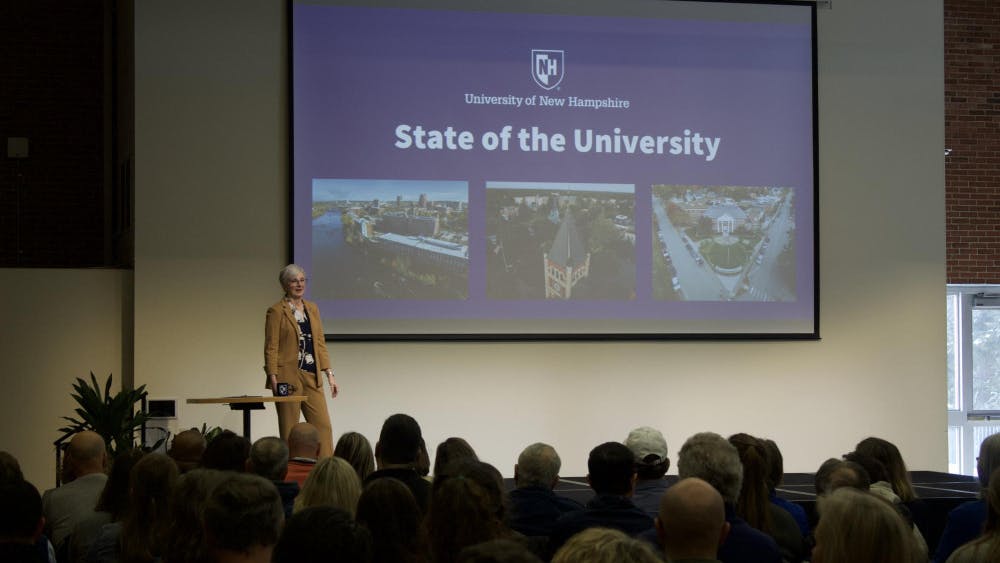By Melissa Proulx, Staff Writer
A newly proposed bill that would enable community colleges throughout the Granite State to offer bachelor’s degrees to students has placed some lawmakers and university officials at odds. “New Hampshire students carry some of the highest [student loan] debt in the nation,” said state Rep. Wayne Burton (D-Durham), one of the bill’s main sponsors. “That’s not good for them, that’s not good for the state. New Hampshire also faces a major workforce challenge in the sense demographics are going down. I foresee a very grim economic future if we don’t build the workforce in number and skills.” Though the University of New Hampshire has dual admissions programs, which allows students to get an associates degree from community colleges like Great Bay Community College in Portsmouth and then come directly to UNH, Burton believes that this change will cater to those who aren’t able to attend traditional classes due to family or work obligations. UNH’s student body president and Republican representative from Salem, Joe Sweeney, is also in support of the bill. “If they could get a four year degree from a New Hampshire school that is within their price range and allows them to be flexible so they can work at the same time, I think that’s going to be a win-win for the state and for the people,” Sweeney said. Much of the opposition for the bill, Burton believes, comes from the institutions themselves because of the potential losses they might face. “[The bachelor degrees] tend to be in career fields that don’t compete with the four year colleges,” Burton said, citing how California is offering programs in dental hygiene, health information management, health science, and emergency services in allied health. Even when looking at it from his position at UNH, the potential costs don’t seem to impact his opinion. “If I was to look specifically at the university perspective on it, it might not be the best thing,” Sweeney said. “But I have faith that the university can recover from it.” Burton said that he studied many of the other states that have similar legislation and the impact that it’s had on their well-being when drafting the legislation. In his testimony given before the House on Tuesday, Jan. 20, Burton specifically looked at the case example of Florida, where the 25 of their 28 community colleges that offer bachelor degrees to their students have seen their enrollment nearly quadruple in the last five years. For his evidence, Burton cited an article on The Hechinger Report that was published in April 2014 written by Jon Marcus, a higher education editor. The Hechinger Report is an organization that works with other media partners in order to investigate issues relating to inequality and innovation in education. Even with all these benefits, Burton said that his inspiration behind the legislation was to create a dialogue about how the colleges are viewed by the larger community continues. Burton, who had served as the president of North Shore Community College, said that he had noticed that a lot of people didn’t fully grasp the important role that they play for people who can’t take the traditional student path. “Not every bill is meant to pass,” he said. “What we’re trying to do is get important issues into the daylight.” However, not all of the opinions of those associated with UNH seem to be the same. Dr. Regina Smick-Attisano, the executive director of the Thompson School, believes that this plan has good intentions, but says that it “certainly won’t be welcomed by us” due to the fact that there are other problems she’d like to see fixed first. Located between the horse barns and A Lot on Mast Road, the Thompson School of Applied Science allows students a variety of associate degrees and is technically a subset of College of Life Sciences and Agriculture. However, unlike students in the dual admission program, Thompson School students must reapply in order to gain entrance into UNH, despite the fact that they are considered to be UNH students. “There’s lots of political pressure for community colleges and universities to work closer together,” Smick-Attisano said. “I applaud that, it’s not good for students not to see a pathway. I applaud their efforts for being aware of the cost of education in the state … [But] I think we’re much too small to be duplicating efforts for students in the state.” As of right now, the bill is currently being discussed by the House Education Committee where it will be decided whether it should be presented to Senate as is or with amendments, or if it should be rejected entirely. The committee has until the beginning of March to reach a decision, according to the bill’s docket. “At this point, I don’t see many reasons to vote against it,” Sweeney said, if the bill were to be put to a vote. “I don’t know if there’s some blind loophole that I’m not seeing yet, or some unintended consequences I haven’t been informed of. I think it’s a pretty common sense bill because it helps people out.”











